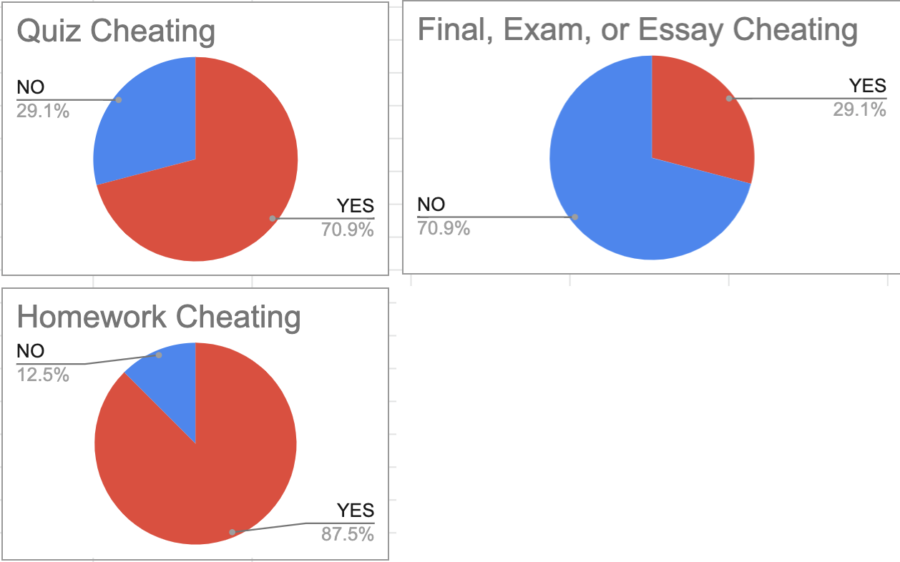Opinion: OPRF needs to teach academic honesty
November 22, 2019
Academic dishonesty has swept the nation. OPRF is no exception.
In an informal survey of 56 students, 93 percent admitted to cheating of some form: 88 of all respondents reported cheating on homework, 71 percent on a quiz, and 29 percent on a final exam or essay.
Despite 96 percent reporting they understood what constituted academic integrity, 72 percent felt unsure as to whether they were guilty of cheating.
OPRF has a responsibility to teach academic integrity.
Academic dishonesty is a source of inequity in the classroom. As OPRF tends the wounds of injustice, this neglect feels especially egregious.
Cheating compromises the integrity of a learning environment. It erodes connections between the cheater and teacher, teacher and classmates, classmates and cheater. If one student has an unfair advantage over others, a classroom isn’t equitable.
The threat of dishonesty taints our vision of fair, unbiased classrooms. Individual teachers and departments deter cheating with seating arrangements and online plagiarism checks, but none of my teachers have initiated discussions about academic integrity.
We can decide to apply values in school settings. They must be distinct, memorable ideas in a student’s mind. This is the technical obligation of parents, but the moral obligation of the public education system. OPRF can, and should, teach academic integrity.
The concept of plagiarism is taught in elementary school. I learned it when my first grade teacher handed us a writing assignment. I sat down and copied my favorite picture book verbatim. When she handed it back, telling me she had to talk to me, I was shocked. I don’t blame myself: I couldn’t have known I was cheating.
While all students understand the ethics of directly copying from others, do they all know how to cite sources? Is it reasonable to expect people to apply values they haven’t been properly taught?
This generation faces new challenges. Classes have group messages for homework answers, students can easily search summaries of texts online, and online translation websites proliferate. These nuances can be quickly punished, but given the scale of the issue, they deserve curricular incorporation.
My previous school took pains to affirm the importance of academic integrity. Each beginning of the school year, my adviser explained the parameters of academic honesty. On every quiz, I signed an oath pledging I hadn’t cheated.
These practices helped me grasp the importance of integrity.
I’m concerned the issue of academic dishonesty evades direct public address.
It is my hope OPRF recognizes, and engages with, this perpetuation of injustice.

